Is it the last taboo? How sportswomen deal with periods
- Published
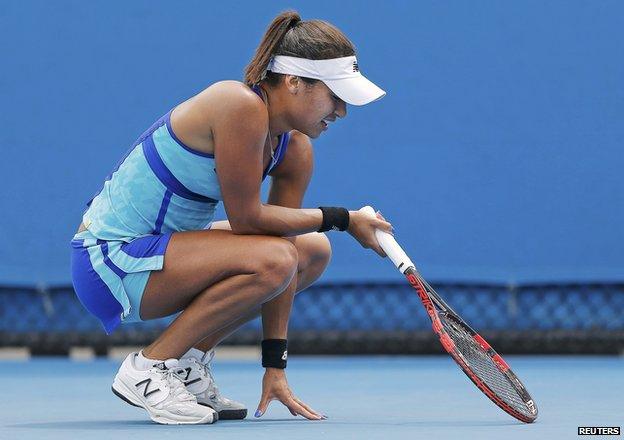
Former British tennis player Annabel Croft has called it "the last taboo".
She's talking about periods and she made the comment after Heather Watson admitted that she lost in the first round of the Australian Open because it was that time of the month.
Watson told BBC Sport: "I think it's just one of these things that I have, girl things."
The 22-year-old said she suffered from dizziness, nausea, low energy levels and spells of feeling light-headed.
Heather Watson lost 6-4 6-0 to Bulgaria's world number 52 Tsvetana Pironkova and said it was not the return of the glandular fever she suffered in 2013.
But how do women in different sports deal with performing while having a period?
Shelley Kerr, football manager
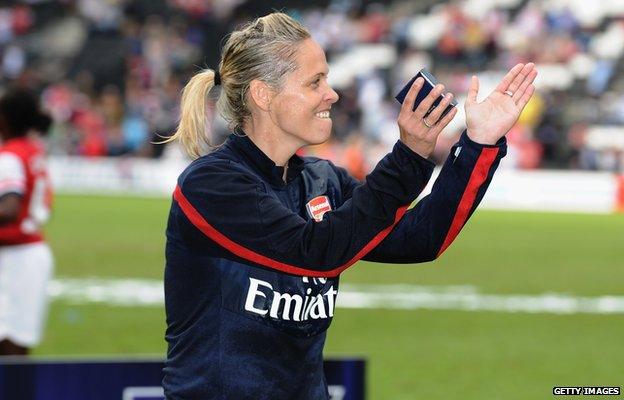
As a player, Shelley captained Scotland before going on to manage Arsenal Ladies, among others.
She's now coaching Stirling University's men's side.
"I'm not sure this is the last taboo, but there are certainly problems attached to playing sport," she told Newsbeat.
"At some point or other you medically don't feel 100%.
"Sometimes depending on your character and the sport you play, it can work in your favour and equally make you emotional.
"Being a former international player, when you train so hard if affects your cycle and it was a very irregular cycle for me and I would maybe miss a cycle for six months."
Sue Smith, England and Doncaster Rovers Belles
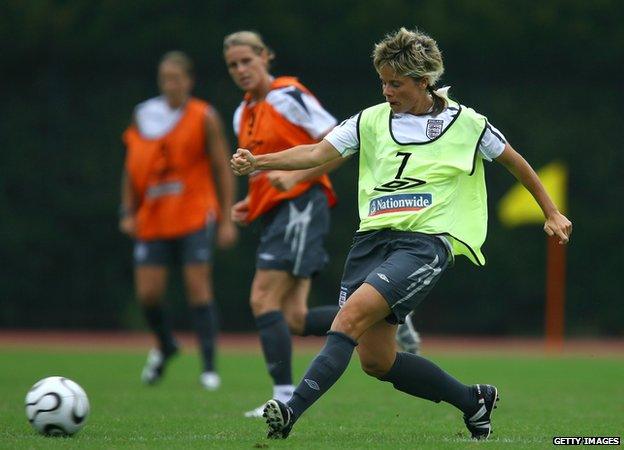
Sue Smith, 35, plays on the left wing for England and Doncaster, although she can also play up front.
"It is a bit of a taboo subject and I think it's something we've hidden away for many years. I think it's great that we're finally bringing it to the forefront and people are talking about it," she told Newsbeat.
"For me personally I've been quite fortunate that I haven't had the physical pains that I know a lot of sportswomen do get, like the belly ache.
"Some of the girls can't actually get out of bed to go and perform or train. That is an absolute nightmare.
"Playing for England, it's white shorts, if it's the time of the month, the girls panic and you might have to wear cycling shorts to try to combat that.
"For me it's probably been more the psychological aspect of it, the hormonal imbalance. Maybe you make a mistake in a game and you struggle to overcome that.
"Girls now, they do choose to take the pill and they do it around major tournaments so that they know they won't be on their period."
Collette Cooper, netball player (trains with England)
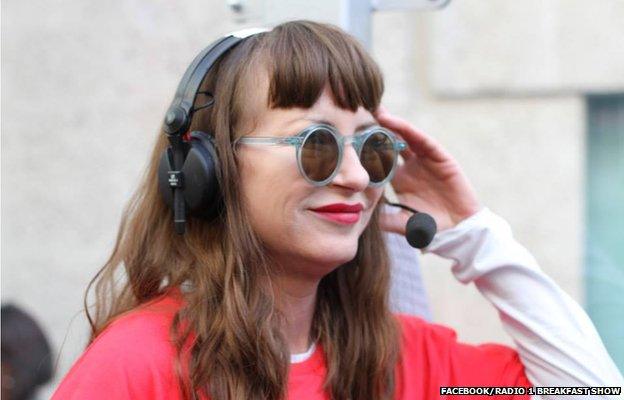
Collette has trained with the England team, but you may know her better as Nick Grimshaw's mate from the Radio 1 Breakfast show.
"It definitely does affect you," she said.
"On our period, we are tired, we feel a little bit run down, we're lacking in iron so when you try and play sport, I become very clumsy myself.
"I drop the ball and it really affects my focus.
"It really shouldn't be taboo because it happens every month and it does categorically affect women playing sport.
"We all talk about it in the team and if you notice a player having an off game you immediately assume it's the time of the month, having a period."
Kate Richardson-Walsh, field hockey player
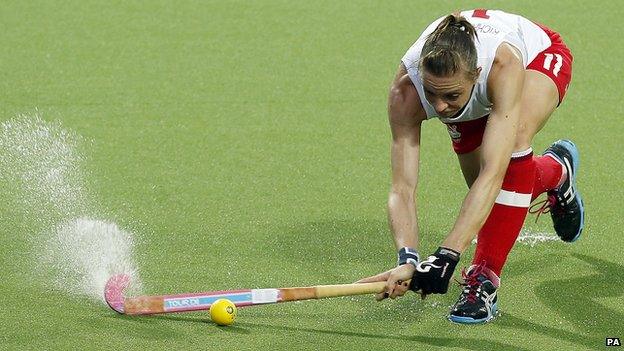
Kate is currently captain of Great Britain and England and was given an MBE in the 2015 New Year Honours for services to hockey.
"At the very elite levels, the fine margins really make the difference so you want to minimise those distractions as much as possible," she said.
"For the vast majority of the team they'll be fine and perhaps their cycle will mean it won't happen during a tournament.
"For those that do struggle and do have problems, I think it's nice to know that there are things you can do to alter that."
Tamsin Greenway, netball player
Tamsin is a member of the England netball team and usually plays wing attack or goal attack.
"We used to have a coach down in Bath and she'd always be adamant that our catching and throwing was off during that time," she said.
"Using the pill, you can control different cycles and that's something that I've done in the past when you're coming up to big competitions.
"You just don't want to have that worry or that hassle."
Lisa Bates, head coach of the London Aquatics Centre performance programme
Lisa trains Olympic swimmers and says a high iron diet is key for female athletes, as well as managing training. She adds that some times of the cycle can actually be helpful.
"Around the time of a menstrual cycle it's important you increase the amount of iron a swimmer intakes. Also Vitamin C, so they can absorb the iron."
"Things such as strength training and training load can actually increase around the beginning of a menstrual cycle. Normally during the first seven to 10 days.
"However you have to decrease it to prevent onset of fatigue as the cycle moves on."
"We also have a great support network from GPs to ensure swimmers have the right contraception method in place and that they're comfortable with that contraception."
Claire Starkey, gymnastics trainer
Claire has trained dozens of gymnasts who have represented Great Britain - mainly working with girls between the ages of 12 and 22.
"That is the age when they start their periods and in that time I've only come across two gymnasts who've had major problems," she said.
"Obviously there are girls in leotards competing and it can be uncomfortable for them so it is something that they need to manage.
"There is not a lot of advice out there."
Follow @BBCNewsbeat, external on Twitter, BBCNewsbeat, external on Instagram and Radio1Newsbeat, external on YouTube